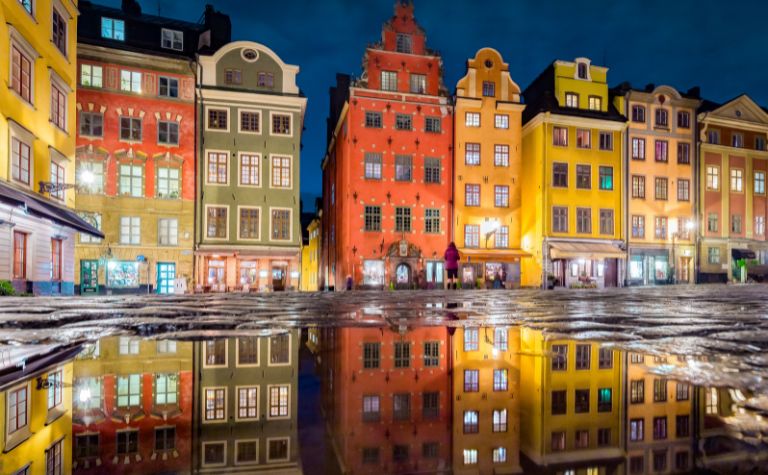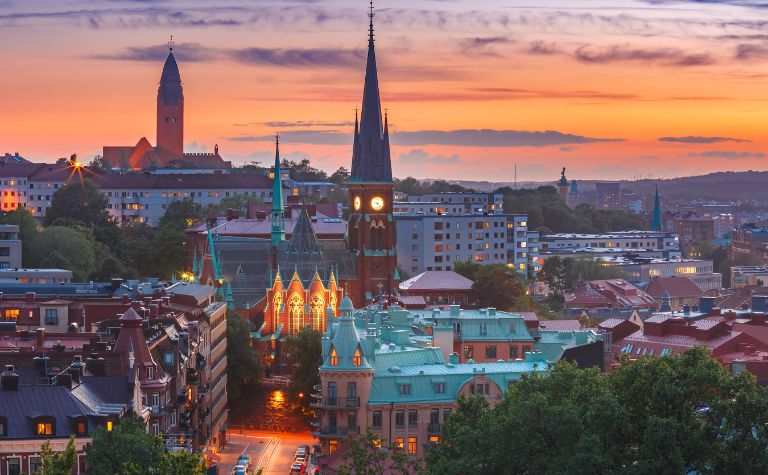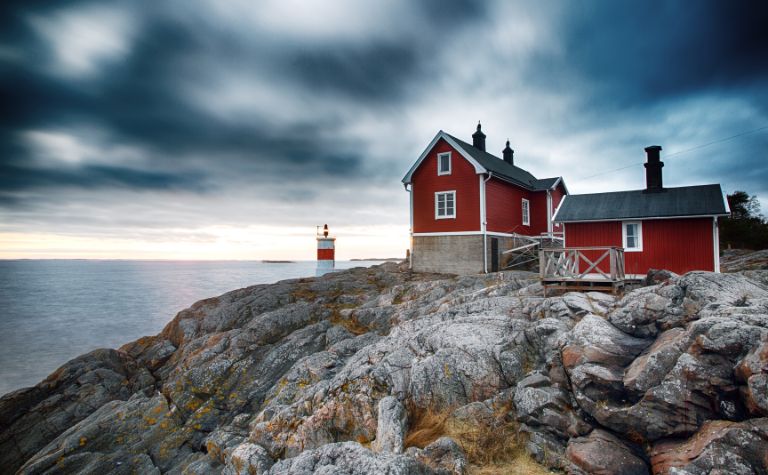Sweden has an interesting system of government. Even though Sweden (like other Scandinavian countries) is often praised for its liberal policies, strong welfare state, and high living standards, its political system is not always understood well.
This raises many questions that are fascinating to delve into.
Sweden is a parliamentary monarchy. The king has a mostly ceremonial role, and the power resides in the parliament and government.
There are general elections at which citizens older than 18 choose MPs. The country is not socialist, but it has a strong welfare state.
This article will examine the political landscape of Sweden. It will describe how its political system works and what political parties are present in the country to answer some important questions you might have about Sweden’s government.
Also, see Why Does Sweden Have a Small Population? to learn more.

Is Sweden a Democracy?
Sweden is a democracy. People vote in general elections every four years to choose their parliamentary representatives. These representatives then make decisions in the name of the people. Citizens can also vote in referendums, join political parties, and freely discuss their ideas.
Officially, Sweden is a unitary parliamentary constitutional monarchy. Its current king is Carl XVI Gustaf of House Bernadotte.
House Bernadotte has been ruling Sweden since 1818, but the role of the king now is ceremonial. [1] The parliament and government hold the real power.
The parliament is elected every four years. Traditionally, general elections are held on the second Sunday of September. [2] Every party that gets 4% or more votes gets into the parliament.
The speaker of the parliament has to propose a prime minister and the MPs vote on the proposition. The role of the parliament is to create laws, while the government implements the laws.
The government can also propose laws, but the parliament has to pass them.
The elections are open to every citizen above the age of 18.
Adult citizens can also cast votes in referendums, join political parties and other organizations, and enjoy the freedom of speech and press.
The government of Sweden also strives to create a country with a strong emphasis on gender equality and gay rights.
Men and women enjoy the same rights. [3]
There are also five official minorities in the country, and the law firmly protects their cultural and language rights. [4] These minorities are:
- Jews and the Yiddish language
- The Sami and the Sami language
- The Roma and the Romani chib
- The Swedish Finns and the Finnish language
- The Tornedalers and the Meänkeli language
People are allowed to deal with administrative and court matters in their mother tongues. Children are also allowed to get an education in their minority language.
Also, see Why Don’t Swedes Get Married? to learn more.

Is Sweden Socialist?
Sweden is not socialist. It has a strong welfare system, with publicly-funded high-quality education and healthcare, but its economy is still capitalist.
However, it is safe to call Sweden a welfare state.
Sweden is often mistakenly seen as socialist because its citizens enjoy some great tax-funded benefits.
This primarily refers to publicly-funded healthcare and education, which allows everyone to stay healthy and get an education without amassing a huge debt. [4]
The benefits do not stop there. Swedish workers get cash benefits for any wages lost due to sickness, and there are special funds for those who get injured at work.
This allows Swedish workers to recuperate and be productive while not endangering their coworkers.
Being a parent in Sweden also comes with some important benefits. Parents get monthly payments for each child, and single parents receive additional money.
There is also a paid 12-month parental leave, which allows parents to recover and bond with their children.
There are also government daycare centers, which are subsidized and allow parents not to get overburdened by work and raising children.
Elderly Swedes get some attractive retirement benefits, too. Most Swedish pensioners get three kinds of pensions, which allows them to have a decent life after retiring.
There are also good disability pensions for those who can no longer work, so they don’t have to live on the fringes of society.
However, these things are not really socialist. Sweden’s economy is not socialist; it is capitalist.
While socialists strive to create a welfare state, the welfare state is not the end goal of socialists.
Socialism primarily means that businesses are collectively owned and controlled by workers and peasants. Socialists also strive to create a planned economy.
While some aspects of the Swedish economy are nationalized, it is still mostly based on privately-owned businesses and the market logic. For that reason, it can’t be seen as socialist.
Additionally, Sweden is a monarchy, and monarchies are incompatible with socialism. Therefore, it can be said that it’s social-democratic but not socialist.
Also, see What Do Swedes Think of IKEA? to learn more.

What Political Parties Does Sweden Have?
The main political parties in Sweden are the Social-Democratic Party, Moderate Party, Swedish Democrats, Left Party, Christian Democrats, Liberals, and the Green Party.
Other political parties exist, but they have little effect on political life in Sweden.
Unlike in the USA, where the two major parties dominate the political landscape, there are many political parties fighting for power in Sweden.
This is typical for European countries with a rich history of multi-party political systems. Sometimes, political parties form coalitions to stay in power.
The biggest party is the Social Democratic party. It has the majority in the parliament, and the prime minister, Magdalena Andersson, is the party’s leader. [5]
The second-largest party is the Moderate Party, a center-right, liberal-conservative party.
The third-largest party is the controversial Swedish Democrats.
This party quickly rose to prominence based on a hard anti-immigration stance and occupies the far-right side of the Swedish political spectrum.
Furthermore, there is the Left Party, which espouses socialist and feminist politics. There are also Christian Democrats, a conservative party, and the Liberals, who espouse classical liberalism and conservative liberalism.
There is also the Green Party, which focuses on ecological problems and green politics but is not particularly large.
Conclusion
Sweden is a parliamentary monarchy. The parliament holds power, and the country is democratic, with a strong welfare state.
Also, see Why Did ABBA Break Up? to learn more.
References:
[1] Source
[2] Source
[3] Source
[4] Source
[5] Source
